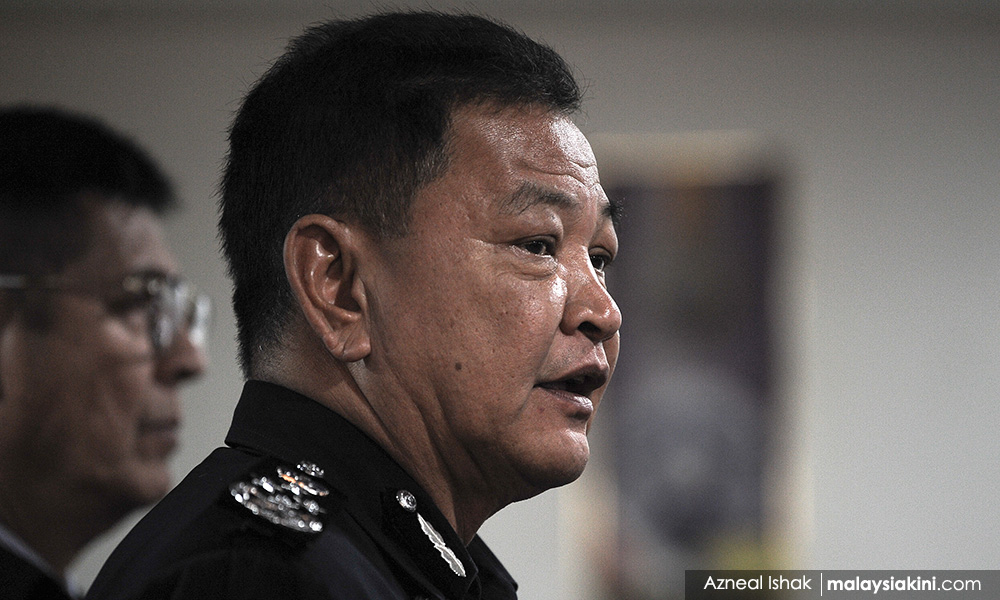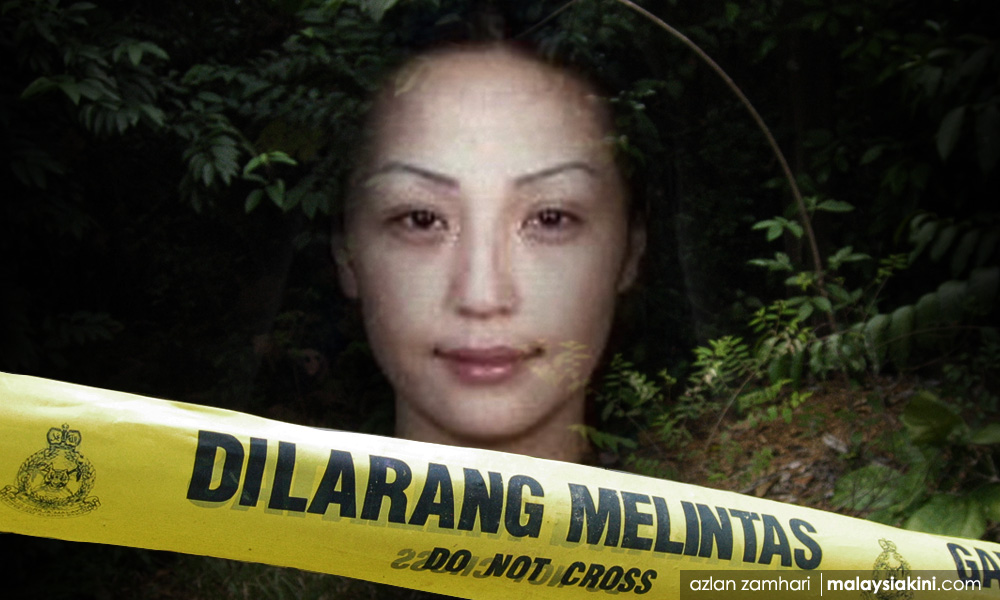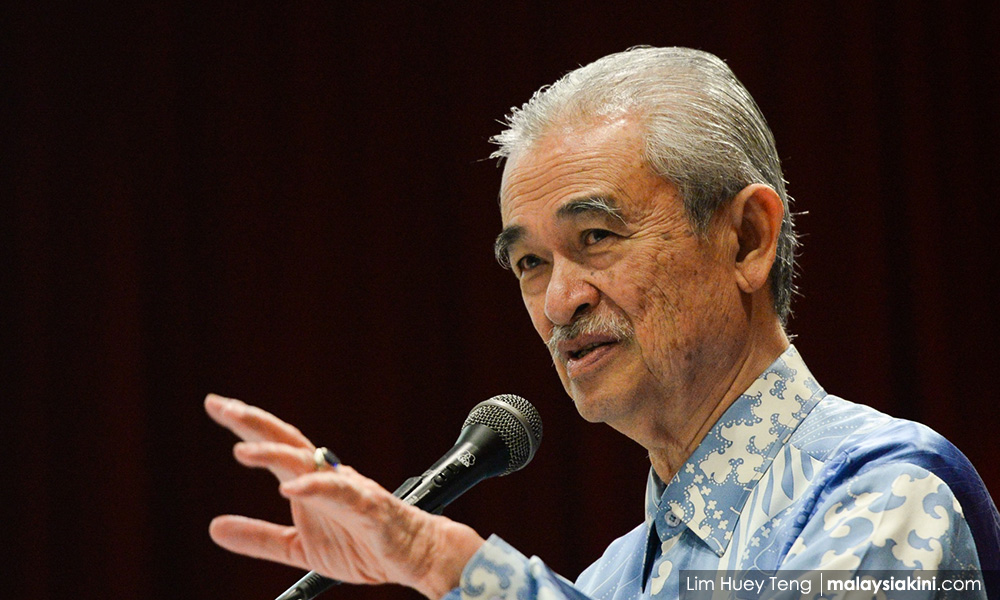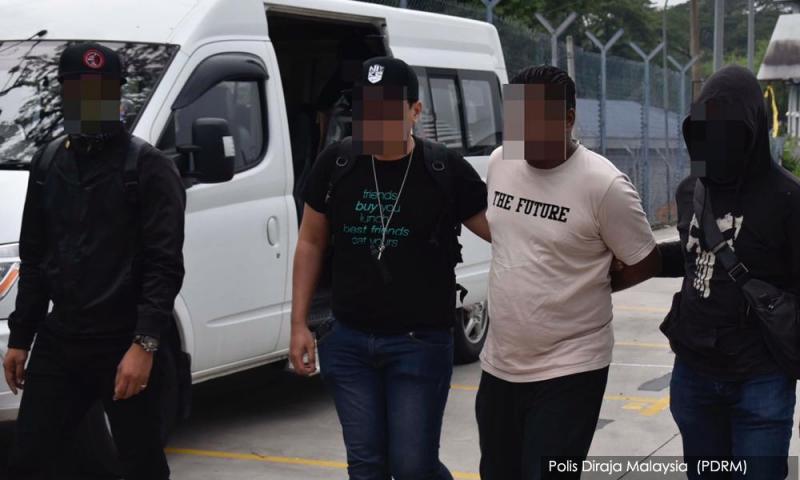Sosma-LTTE: Who is calling the shots?
COMMENT | Last Friday, Finance Minister and DAP secretary-general Lim Guan called the arrest of his party's members under Security Offences (Special Measures) Act 2012 (Sosma) a "deep state" operation. According to Lim, a question on this was posed during a meeting of party leaders. What does this mean? It means that we are in deep trouble because it implies that the state is not in control.
Many questions arise from this. Does this mean that the police are truly so independent that they call the shots while the prime minister and the home minister are not involved? Prime Minister Dr Mahathir Mohamad has always had a standard answer – then and now, which is consistent.
He blamed the 1987 Operasi Lalang on the inspector-general of police then - Hanif Omar. He told Lee Kuan Yew, then the prime minister of Singapore, that he was not aware that Anwar Ibrahim was arrested under the Internal Security Act 1960 (ISA) by the police in 1998.
Lee was shocked by the answer. Mahathir initially claimed that Anwar’s black eye (which gave PKR its logo) was a desperate self-inflicted wound by Anwar to get public sympathy. Only after massive weekend protests demanding the IGP’s resignation, that he called for a Royal Commission of Inquiry which found the IGP guilty and responsible for Anwar’s black eye.
The current IGP, Abdul Hamid Bador (photo), was handpicked by Mahathir himself in May this year, although some parties were not happy with his appointment.

Now, looking at many incidents - the Azmin case, Dr Zakir Naik’s investigation and now the LTTE-linked Sosma arrests - was Mahathir not in the know or was he indeed the mastermind? Will the 'deep state' jeopardise Mahathir’s government or work hand in hand with him?
Or could it be that the police, who are totally opposed to the Independent Police Complaints of Misconduct Commission (IPCMC), are now giving a difficult time to the elected government to negotiate for a watered-down IPCMC instead of the one called by civil society and the rakyat at large?
Police – an instrument of the state
Unlike other countries in Southeast Asia, where the army plays an important role in determining the politics of the day, in Malaysia, the police play a prominent role. In Indonesia, Burma, Thailand and the Philippines, the army plays a significant role in politics and in determining the support for the ruling party. In Malaysia, we don’t have a tradition of the army ever calling the shots.
Malaysia is lucky to have a government which has been elected by the people every five years, although there have been many cases of abuse of the electoral process. Nevertheless, the police have, over the years, played a very critical role in maintaining the power of the ruling party.
For example, the state used the police to invoke the ISA in 1974 against the student movement, in 1978 against the MAS Union, in 1998 against the Reformasi movement, and in 2007 against Hindraf, et cetera.

The police were also used extensively in prosecuting Anwar’s Sodomy I and II cases. The murder of Mongolian national Altantuya Shaariibuu was linked to the members of the police Special Action Unit, who were among those assigned as bodyguards to the PM and DPM.
After the abolition of the ISA in September 2011, Najib used the Sedition Act to arrest many people. Again, one needs the police to execute these arrests. The ISA was replaced by Sosma, which was passed by Parliament in June 2012 and came into force on July 31, 2012.
In spite of Najib’s assurance that Sosma won’t be abused like the ISA, he did use it in October 2015 against Khairuddin Abu Hassan and his lawyer Matthias Chang. Sosma was again used against Bersih chief Maria Chin Abdullah in November 2016.
For the record, 80 organisations, as well as the Human Rights Commission of Malaysia (Suhakam) and the Bar Council, have called for the repeal of Sosma. Pakatan Harapan, in its manifesto, also pledged to repeal Sosma.
Now, who is actually calling the shots?
Why did the Sosma-LTTE arrests take place now? The question on everyone’s mind is, why now? Is it to divert attention from the Malay Dignity Conference or is it to win over Malay support in the Tanjung Piai by-election? Not many people are worried about the LTTE Malaysia section - what are they going to attack next and who their target is. Most people assume that, as in the many other arrests before, there are other motives for the crackdown.
Now, back to my original question. Though I think the Kalaimughilan video challenging the police might have triggered the arrests, yet the arrest of DAP state assemblypersons from the ruling party definitely would have got sanction from above.
Even the police have said that the Sosma arrests were not carried out from below but from above, involving the very high command. It is definitely arahan dari atas (orders from higher authorities). The question is - is the arahan from the police boss or from the head of state or the home minister?
Both Mahathir and Home Minister Muhyiddin Yassin have defended the arrests. All the main leaders of Harapan, including PKR president Anwar Ibrahim and Mohamad Sabu - except the DAP leaders - have said that the police must be allowed to do their work and investigation.

On Oct 26, 2006, Mahathir said that his successor Abdullah Ahmad Badawi (photo) had turned the country into a police state. The atmosphere prevailing then, he said, was preventing him from publicly airing his grievances towards the government.
It was reported by the Associated Press (AP), which quoted Mahathir as saying in a press conference at his residence in Seri Kembangan: "The habit of asking police to frighten people should be stopped."
If one is to call the Badawi-era state a police state, then what do you call Mahathir’s state? Who is now using the police to frighten who?
The bigger question
The bigger question is who controls or who polices the police? Shari Sungip has said that when being interrogated by the police Special Branch (SB) during his ISA detention, the SB told him that the police can determine the next PM.
Again, whatever the situation we are in now, Harapan is going into the Tanjung Piai by-election as a very divided party. Harapan's presidential council, the coalition's highest authority, has to put a stop to all this. They must make clear if they are the ones who determine the future of the country – or if it is all in the hands of the PM.
Here again, the question arises – who is calling the shots, the prime minister or Harapan's presidential council? Harapan has always criticised the previous government, saying the PM (then) has absolute power. Have things changed now?
Harapan should put their house in order. They have been entrusted with the power to rule and govern. They cannot subcontract this job to the deep state. The Harapan government has full control and powers. There is nobody else to point the finger at.
S ARUTCHELVAN is the deputy chairperson of PSM.
The views expressed here are those of the author/contributor and do not necessarily represent the views of Malaysiakini.
RM12.50 / month
- Unlimited access to award-winning journalism
- Comment and share your opinions on all our articles
- Gift interesting stories to your friends
- Tax deductable
